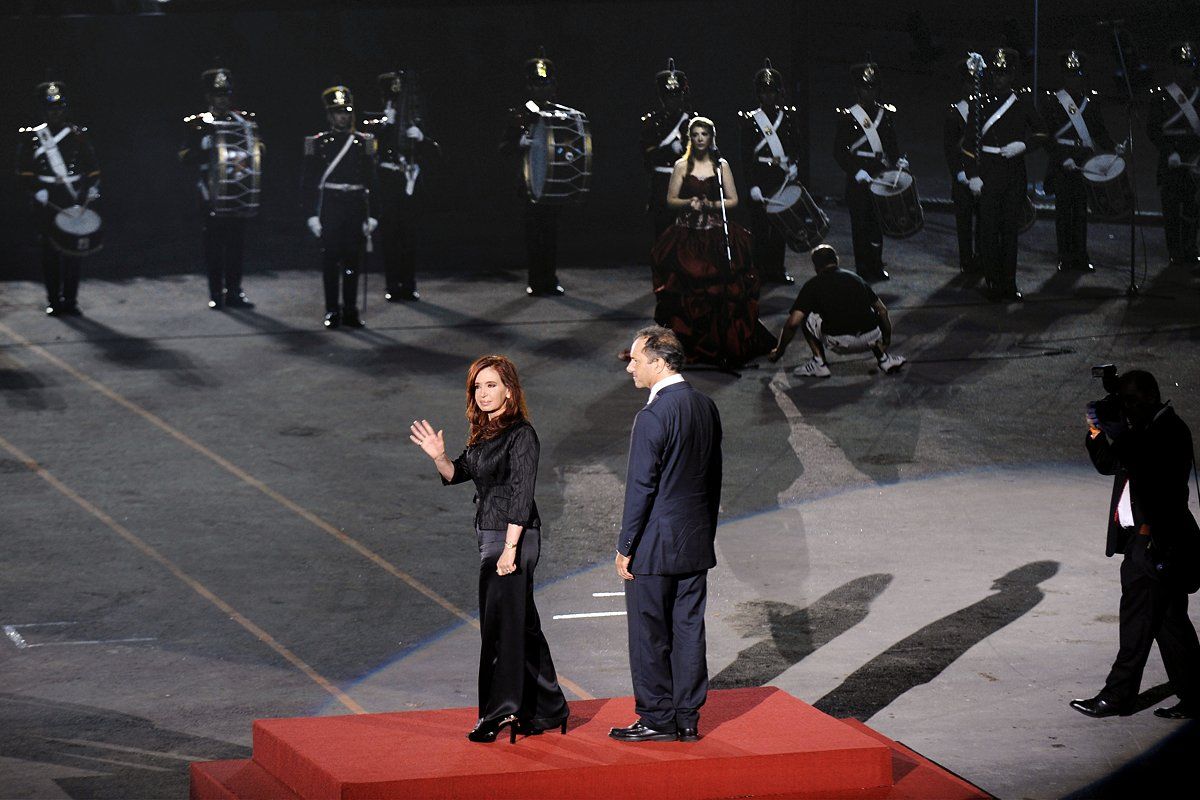
This time last year, Argentine President Cristina Fernández de Kirchner hit a wall. Her husband, former president Néstor Kirchner, had died of a massive heart attack at 60. In one blow, she had lost her lifelong companion, a campaign mentor, and her accomplice in a political dynasty that had become the talk of the hemisphere. In grief, and reeling from a protracted battle with powerful lobbies, the stylish and combative Kirchner seemed suddenly deflated. Diplomats questioned her mental health. Pundits scrambled to draft political obits. The smart money in Buenos Aires bet on when, not if, she would walk away from power and glory. They were wrong.
Riding a sympathy vote and a resilient economy, Kirchner is now poised to sweep the Oct. 23 election. Virtually all polls have her taking well over 50 percent of the popular vote in what could be the largest landslide in decades. Less clear is what another four years of the "K" dynasty will mean for Latin America's third-largest economy, which has become the benchmark for developing-world boom and bust.
Kirchner has escaped ruin before. Hoisted into office in 2007 when Néstor declined to seek reelection, her prospects looked grim. The economy, though recovering from a massive debt default in 2001, was overheating and dissent was rising. Kirchner answered by freezing prices on gas, bus fares, and food. In 2008 she nationalized the private pension system—critics called it a looting—and seized the flagship airline. She also levied a stiff export tax on farm goods. Big farmers, who reap a quarter of GDP, rebelled by disrupting supplies. As supermarkets emptied, middle-class Argentines poured into the streets to protest. Then her vice president became a turncoat and cast a tie-breaking vote in the Senate to defeat her farm-tax bill.
As ratings plunged, Kirchner's allies lost control of Congress. Any other leader might have dialed back. Kirchner doubled down. When the price freeze failed to stanch inflation, she purged the national statistics bureau, intimidating those daring to divulge "unofficial" figures. The result: while official reports put inflation at 10 percent, everyone else says it's at 20 to 25 percent.
Until now, such hubris has come cheap. With the economy humming and consumers spending, most Argentines merely shrug. Kirchner has also invested aggressively in poverty busting, giving $2 billion in cash transfers to poor families with school-children this year alone. Such largesse has sent her popularity soaring and drawn comparisons with Eva Perón, Argentina's iconic "mother of the poor."
But as global markets falter and Argentina's trading partners brace for the slowdown, comparisons may soon be less rosy. "You can push a lot of limits when the economy is growing and there are jobs, even in a poorly managed economy," says Eurasia Group analyst Daniel Kerner. "But things can unravel quickly in a crisis." Something not even the friendliest statistics can help.
Uncommon Knowledge
Newsweek is committed to challenging conventional wisdom and finding connections in the search for common ground.
Newsweek is committed to challenging conventional wisdom and finding connections in the search for common ground.
About the writer
To read how Newsweek uses AI as a newsroom tool, Click here.






